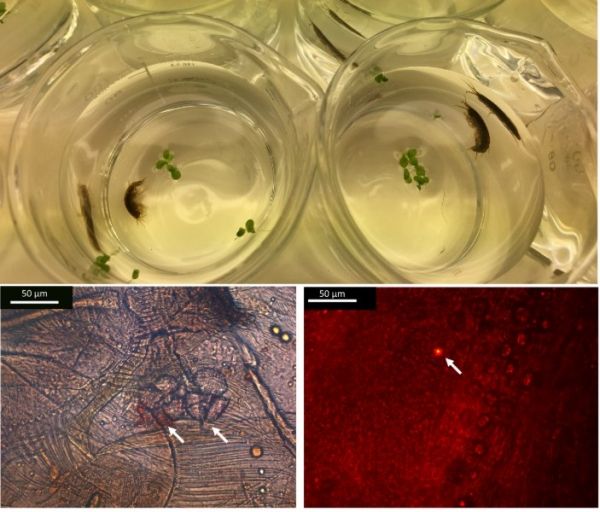Researchers from University College Cork have discovered that microplastics (plastic pieces smaller than 5 mm) in our freshwaters are being broken down into even smaller nanoplastics (smaller than 1 µm, at least five thousand times smaller in size) by a type of freshwater invertebrate animal, and that this may happen much faster than previously estimated.
Their findings have significant consequences for the understanding of microplastics in our environment and could have implications for the food chain.
Until now, breakdown of plastics had been thought to occur mainly through very slow processes in the marine environment such as sunlight or wave action, which can take years or decades. But UCC researchers have discovered that a very common invertebrate animal found in Irish freshwater streams is able to rapidly breakdown these microplastics in just hours.
Continue reading at University College Cork
Image via University College Cork


